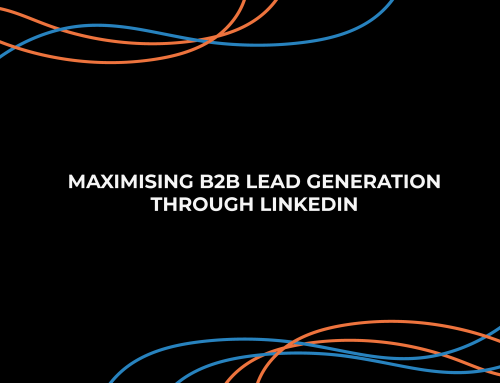“Why bother with personal branding?” you might wonder. Well, let’s unpack that.
In today’s cutthroat digital landscape, personal branding isn’t just a trendy term—it’s a vital strategy. As professionals navigate industries marked by relentless change and stiff competition, standing out becomes more crucial than ever.
Personal branding gives individuals the power to shape their professional identities, articulate their unique value propositions, and set themselves apart in a crowded field of talent.
Senior leaders, in particular, can reap substantial rewards from nurturing a strong personal brand. In an age where networking and managing one’s reputation are essential for career advancement, top executives recognize the strategic edge gained by investing in their personal brands. Platforms like LinkedIn serve as invaluable tools for senior leaders, enabling them not only to broaden their professional circles but also to establish themselves as thought leaders in their respective fields.
In today’s article, we will explore the unique benefits of using LinkedIn for professional networking, including strategies for thought leadership on LinkedIn, and how building a personal brand can benefit successful senior leaders.
Why personal branding is so important?
Social media has changed everything from the way we interact with one another and how we conduct business. That is why branding is no longer just a tool major corporations and companies use to market themselves. No, it is now increasingly used by business professionals hoping to establish themselves as thought leaders and influencers in their industries.
Regardless of how you personally feel about your online presence, you already have a personal brand. Even if you haven’t optimised your LinkedIn profile to provide much information, you’re branding yourself – just not very well. While those of you who are off social media completely, could be at a disadvantage compared to the hundreds of thousands of online professionals engaging intentionally with their communities.
There are a lot of statistics that show the benefits of investing in your personal brand, especially for leaders and executives:
- 82% of individuals are more inclined to trust a company with socially active senior executives.
- 77% of consumers are likelier to buy from businesses whose CEOs are active on social media.
- 50% of Millennials expect CEOs to address societal issues.
So, as you can see, personal branding is not just a trend; it’s an essential strategy in today’s competitive digital landscape.
What are the benefits of personal branding?
Beyond these statistics, investing in your personal brand opens up a world of opportunities and advantages:
Establishing Credibility & Authority
Firstly, it improves your visibility and credibility within your professional sphere. When you take the time to build a professional network by creating compelling content such as LinkedIn articles, newsletters, or other content and engaging with your audience, you can establish yourself as a trusted and recognisable figure, making it easier for others to find and engage with you.
This credibility builds trust, meaning that others are more likely to seek your expertise, collaborate with you, or even recommend you to their own networks. As a result, you become a go-to resource in your field, opening up opportunities for professional growth and advancement.
This credibility doesn’t just benefit you personally; it can also reflect positively on your company. As you establish yourself as an expert in your field, people start seeing your company in a better light, too. This viewpoint is supported by many professionals, with a study by Edelman & LinkedIn finding that 88% of professionals agree that thought leadership improves a company’s credibility.
In short, by investing in personal branding and becoming known as an authority in your area, you not only improve your own professional image but also contribute to boosting the reputation of the company you’re associated with.
Expanding Professional Networks
Secondly, a strong personal brand expands your professional opportunities. As you become known for your expertise and unique value proposition, you attract a wider range of career prospects, including job offers, speaking engagements, collaborations, and consulting opportunities.
Active engagement within your professional network is crucial, bringing forward many opportunities. By consistently interacting with peers, industry leaders, and potential collaborators through actions like liking, commenting, and sharing content, as well as participating in relevant LinkedIn groups, senior professionals can build meaningful relationships with their peers.
These connections go beyond just online interactions, often leading to fruitful collaborations, mentorship opportunities, and valuable knowledge exchanges.
By leveraging your thought leadership on platforms like LinkedIn improves your credibility and visibility within your industry circles. This, in turn, attracts like-minded peers, mentors, and potential clients or collaborators who recognize the value you bring to the table. These relationships are strengthened by your demonstrated expertise and contributions, facilitating the establishment of mutually beneficial partnerships and alliances.
Make Positive Change
Lastly, a strong personal branding empowers you to effect positive change both on a personal and professional level. Whether it’s advocating for important causes close to your heart such as environmental sustainability, promoting diversity and inclusion initiatives, or supporting social justice movements, your personal brand serves as a powerful platform for driving meaningful change. By leveraging your influence and visibility, you can amplify important messages, raise awareness, and mobilise support for causes that matter to you, whatever they may be.
Your personal brand allows you to inspire others through your journey and experiences. By sharing your successes, challenges, and lessons learned, you can motivate and empower individuals who are navigating similar paths. Whether it’s through mentoring relationships, public speaking engagements, or thought-provoking content, your authenticity and transparency can resonate deeply with others, sparking positive change in their lives.
On a professional level, your personal branding can shape industry perceptions and drive innovation. By establishing yourself as a thought leader and influencer within your field, you can challenge conventional wisdom, spark meaningful conversations, and drive positive change within your industry. Whether it’s through thought-provoking articles, groundbreaking research, or innovative solutions to industry challenges, your personal brand can inspire others to think differently and push the boundaries of what’s possible.
How to build a personal brand on LinkedIn?
So, the next question is, how do you build a personal brand on LinkedIn? Personal branding on LinkedIn requires a strategic approach to maximise your visibility, credibility, and influence within your professional network. Here are some key steps to get you started:
-
- Define Your Brand: Begin by clarifying your professional identity and what sets you apart from others in your field. Identify your unique strengths, expertise, and values that you want to convey through your personal branding. Maybe it’s your innovative approach to problem-solving, your deep industry knowledge, or your unwavering commitment to excellence. Whatever it may be, honing in on these distinct qualities will form the foundation of your personal brand and help you stand out.
- Optimise Your LinkedIn Profile: Your LinkedIn profile serves as your digital resume and is often the first impression others will have of you. So, make sure your profile is complete, up-to-date, and tailored to reflect your personal branding. This includes a professional profile photo, a compelling headline, a detailed summary highlighting your skills and accomplishments, and relevant work experience.
- Create Engaging Content: Share valuable insights, industry trends, and expertise through LinkedIn posts, articles, and multimedia content. Consistency is key, so aim to regularly publish content that showcases your expertise and provides value to your audience. LinkedIn offers various content formats to suit different preferences and communication styles. For example, you can write informative articles to dive deeper into topics, create eye-catching infographics to visualise data, or produce engaging videos to share insights in a more dynamic way. Experimenting with different formats can help you find what resonates best with your audience and keeps them engaged.
- Build Meaningful Connections: Actively grow your professional network by connecting with colleagues, industry peers, influencers, and potential collaborators. Personalise connection requests to establish rapport and foster genuine relationships. Engage with your connections by participating in relevant LinkedIn groups, joining discussions, and offering support and advice where appropriate.
- Demonstrate Thought Leadership: Position yourself as a thought leader within your industry by sharing original insights, opinions, and expertise on topics relevant to your niche. Showcase your knowledge and experience through thought-provoking articles, presentations, and speaking engagements. Encourage dialogue and interaction with your audience to further establish your credibility and influence.
- Engage Authentically: Be authentic and genuine in your interactions on LinkedIn. Share personal anecdotes, experiences, and lessons learned to humanise your brand and connect with your audience on a deeper level. Respond to comments and messages promptly, and seek opportunities to provide value and support to your network.
- Measure Your Impact: Monitor the performance of your LinkedIn content and activities to assess the effectiveness of your personal branding efforts. Track metrics such as engagement, reach, and profile views to gauge your progress and make adjustments as needed to optimise your strategy.
Conclusion
In today’s competitive professional world, senior leaders need to pay attention to their personal branding on LinkedIn. Through thought leadership, strategic content creation for LinkedIn, and active engagement, senior executives can effectively establish credibility, expand their professional networks, and seize valuable career opportunities. By leveraging their personal brand to showcase expertise, foster trust, and drive business growth, senior leaders can position themselves for greater success and influence in their industries.
Therefore, for senior leaders seeking to advance their careers and make a significant impact, investing in developing their personal brand on LinkedIn is not just advisable—it’s essential. Thought leadership on LinkedIn and consistent content creation are integral components of this process, offering a pathway to limitless opportunities and advancement.
StraightIn is a LinkedIn marketing agency based in Manchester. We specialise in helping professionals and businesses leverage the power of LinkedIn to improve their branding and drive results. If you would like to learn more about personal branding or content marketing strategies tailored for LinkedIn, get in touch with us today. Our team is here to support you in maximising your presence and impact on the platform.




